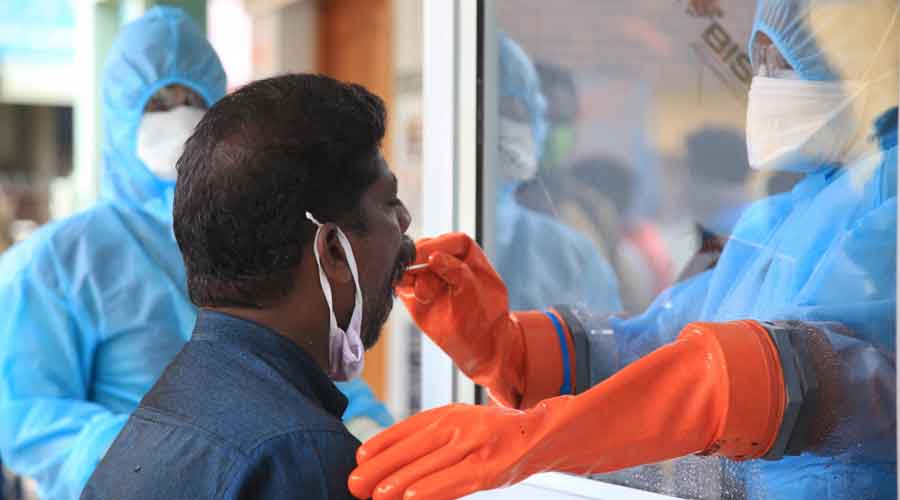Research by Indian scientists has suggested that people infected with omicron after full immunisation with the AstraZeneca or Pfizer-BioNTech Covid-19 vaccines have significant immune responses that protect them from omicron and other coronavirus variants.
In lab experiments, the scientists at the National Institute of Virology (NIV), Pune, assessed the anti-viral immune responses of individuals who had received two doses of either vaccine and recovered from omicron infections against various coronavirus variants.
Their findings indicate that omicron infections in vaccinated people generate “significant” immune responses against not only omicron but against other variants also, including the delta strain that had fuelled India’s second Covid-19 wave last year.
“The immune response induced by omicron could effectively neutralise the delta variant, thereby making reinfection with delta less likely, thereby displacing delta as the dominant strain,” virologist Pragya Yadav and her colleagues said in their study.
The results suggest that a nationwide omicron wave in a vaccinated population could serve as a shield against future outbreaks of delta and are in line with a US study last week that had indicated that omicron in fully vaccinated people induces immunity against multiple variants.
Yadav and colleagues collaborating with hospitals in Mumbai and Jaipur assessed immune responses from blood samples taken from 33 vaccinated omicron patients and six unvaccinated omicron patients.
Most of the patients were international travellers — 25 had received Pfizer-BioNTech vaccine doses, eight had received the AstraZeneca vaccine. The study assessed their immune antibody responses against the alpha, beta, gamma, delta and omicron variants.
The findings underline the need for an omicron-specific vaccine strategy, the NIV researchers said in their study, which is not peer-reviewed yet but posted on bioRxiv, an online archive of research papers.
A study by researchers at the University of California, San Francisco, had last week suggested that an omicron infection alone may not elicit immune responses against multiple variants, but in vaccinated people, omicron induces immunity against itself and other variants.
Both the UCSF and NIV studies point to the need to incorporate omicron in future vaccine design strategies, particularly in efforts aimed at producing “multivalent vaccines” tailored to protect people from more than one coronavirus variant.
Medical experts have speculated how the immune-evasive, fast-spreading omicron might impact the global Covid-19 pandemic since its emergence in November 2021 and rapid spread worldwide, marked by fresh surges including in India.
India on Wednesday recorded around 285,900 new Covid-19 infections, an 11 per cent overnight increase over around 255,000 cases a day earlier. The rise coincided with an increase in tests — 1.76 million tests on Wednesday over 1.47 million the previous day.
Sections of epidemiologists who had predicted that the third wave would peak between January 20 and February 10 with daily new infections exceeding 600,000 at the peak are puzzled that the counts so far have not exceeded even the second wave’s peak of around 414,000 cases.
But the current omicron-driven wave has been marked by significantly lower levels of severe disease and hospitalisation. Infectious disease experts believe this is due to a mix of omicron’s inherent lower virulence and protection offered by prior infections and vaccination.
The nationwide vaccination drive had until Wednesday fully vaccinated around 694 million people of estimated 944 million eligible adults.
Nearly 44 million children aged between 15 and 17 have also received vaccine doses.











